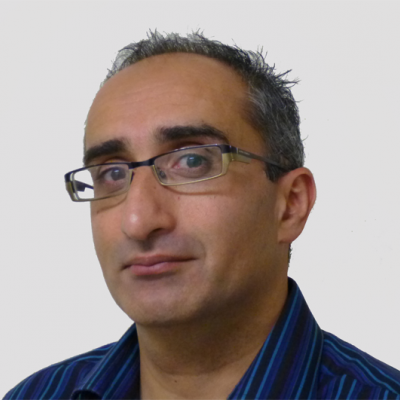Improving medicine prescribing in care homes
8 October 2013

Many older people take a large number of medicines, but those who use the services of care homes often have little say over what medications they are taking. Sometimes they’re prescribed medicines that are no longer needed, or may even cause harm, and medicines are often prescribed without regular review.
At Northumbria Healthcare NHS Foundation Trust, we've been working on a project to develop a medication review process that allows patients in care homes, and their family or carers, to be fully involved in decisions about their medicines.
The project is being funded by the Health Foundation’s Shine programme. We wanted to use the funding to 'pump prime' our project – pilot data had already suggested that stopping unnecessary prescriptions could make significant savings from the drugs budget. Our idea was to start and then use the savings to sustain it on an ongoing basis, so the funding was mainly spent on a project manager and clinical pharmacist time to support the project.
It quickly became clear, however, that being part of the Shine programme was much more than simply the funding. We were given support to carefully structure and shape the project, using quality improvement principles set out by the Health Foundation.
Before we started the project, most changes to medicines were done because they were ‘in the patient’s best interests’, but with one key omission: the patient was not consulted. We’ve developed a framework for questioning the appropriateness of medicines being prescribed, significantly changing the review process.
The clinicial pharmacist has so far reviewed the medication of patients in 12 test care homes. Following this, a multidisciplinary team comprising of the pharmacist, care home nurse, general practitioner and the patient (or family) discussed the review, asking four main questions:
- Does the medication have a purpose?
- Is the mediation appropriate or safe?
- Is there medication missing that the patient could benefit from?
- What are the patient’s views/wishes?
An action plan is then drawn up with the patient and family/carer and only actioned once the patient/family/carer has agreed. There’s then a follow up a few weeks after the review and nurses closely monitor patients following any changes.
As patient invovlement is so key, we've developed a patient involvement framework to that states:
- Patients should be involved in all decisions. If this is not possible then…
- The family should be fully involved. Where the family want no involvement…
- A letter outlining discussions and interventions made by the team is sent to the family, with option for them to comment or reverse any changes made.
- In cases where the patient has no family then advocates are asked to be involved.
So, how are we doing so far? We expect over 300 patients to be reviewed over the course of the project and so far we have data on 105 patients, have made 364 interventions (the majority of which were to stop medicines), and stopped 195 of 825 medicines (23.6%) that the patients were originally taking. The net cost savings are £21,705 or £206 per patient reviewed.
We have put better medicines management and patient involvement firmly in the minds of local health and social care commissioners, who see and understand the benefits our approach to medicines management and hopefully will continue to fund this service after the Shine project has ended.
But for me, the biggest legacy of our Shine award has been the positive relationships that we have built with a number of health professionals, social services and patient advocates. It became apparent very quickly that, for our proposal to work, we needed care homes, GPs and patients to start working together when making decisions about medicines – the project has really brought these groups together.
We also created better links between experts in old age psychiatry and general practice, so decisions that ordinarily wouldn’t have been made (eg stopping 'specialist' medicines such as antipsychotics in dementia patients) could be openly discussed. Better relationships have meant better care for patients in care homes.
So should you apply for the new round of Shine? If you believe you have an innovative idea that has the potential to help patients then the programme will help you develop your idea, create a platform for testing/improving your idea and ultimately create an evidence base for your idea. Do it!
Wasim is a Research & Development Pharmacist at Northumbria Healthcare NHS Foundation Trust.
Work with us
We look for talented and passionate individuals as everyone at the Health Foundation has an important role to play.
View current vacanciesThe Q community
Q is an initiative connecting people with improvement expertise across the UK.
Find out more

